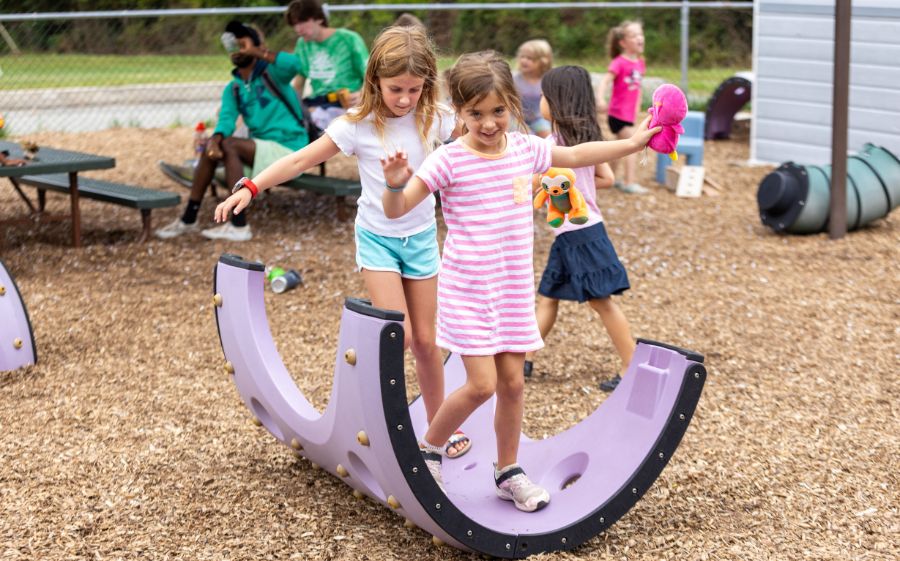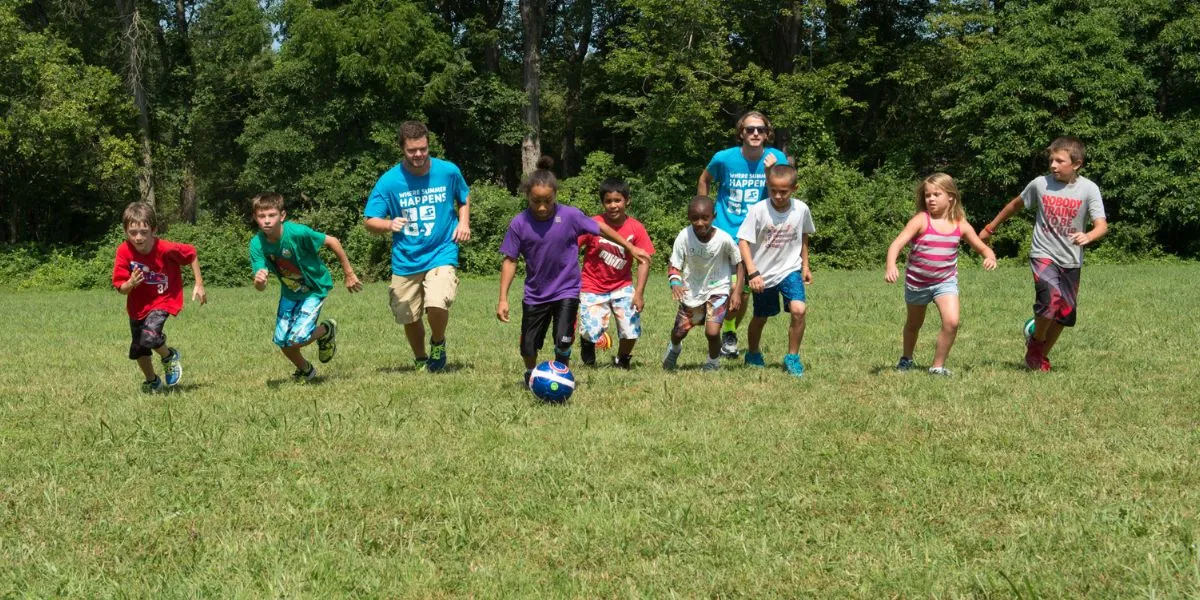
Published: 12/07/2023 - 8:00 AM
Most American children spend between five and seven hours engaged in "screen time" each day, which means they spend less time outdoors and more time in front of gaming consoles, mobile phones, and computers.
While technology offers several benefits — online games can encourage teamwork and online communities can foster community — playing outside is still essential for a child's development. Parents and caregivers can help their kids develop physically, socially, emotionally, and intellectually by encouraging more outdoor activities.
Physical Development Benefits
Children need exercise as they grow, and outdoor play can encourage movement. Consider the following physical benefits of outdoor play for children.
1. Enhanced Motor Skills
Developing fine and gross motor skills is essential for young children, as these physical skills are the building blocks of human movement. Spending more time outdoors provides greater opportunities to develop these vital skills. For example, throwing a ball will develop coordination, and if your children enjoy climbing a tree or riding bikes, they'll strengthen their agility and balance.
2. Improved Immunity
Fresh air and a healthy dose of sunshine can improve your mood, and there's a scientific reason as to why. Indirect sunlight stimulates the pineal gland, helping children sleep better and boosting their immunity.
There's also a benefit to getting dirty on the playground! Regular exposure to microorganisms helps prepare your child's immunity system to guard against viruses.
3. Lower Risk of Obesity
Obesity affects people of all ages, including children. According to the Centers for Disease Control and Prevention (CDC), children and adolescents aged 2 to 19 have a 19.7% risk of developing obesity, meaning they could experience one or more obesity-linked conditions, such as high blood pressure, high cholesterol, type 2 diabetes, joint problems, asthma and sleep apnea. Regular physical exercise can help children maintain a healthy weight.
Social Development Benefits
Leaving the house and playing outdoors allows children to interact with others their age. Here are some of the social benefits of outdoor play for children.
1. Learning to Collaborate
Many outdoor games require children to collaborate to achieve a common goal. For example, it takes at least three children for a successful game of jump rope and a team of children to play most ball sports. Kids who engage in these activities learn turn-taking and how to work together.
2. Becoming Stronger Communicators
The playground — as with any shared area — has its own social rules, and proper communication helps to navigate this common space. Asking for a turn on the swing or saying they're ready to play a different game helps children verbalize their thoughts and practice their speech.
Emotional Development Benefits
Children who start to develop an understanding of their emotions from a young age are more adept at expressing their feelings. Outdoor play boosts emotional development in the following ways.
1. Improved Self-Confidence
Children navigating the monkey bars or going down the slide for the first time face new challenges. These obstacles are examples of risk play. Children who take valuable risks — for example, walking along a balancing beam — experience independence and confidence when they successfully complete the task.
2. Increased Appreciation for Nature
Playing outside helps children develop positive associations with natural spaces. This encourages them to treat the environment and its furry, scaley, and feathered inhabitants with respect.
Intellectual Development Benefits
The outdoors is nature's classroom where children can foster their creativity and problem-solving skills. Explore some of the intellectual benefits children enjoy when they play outside.
1. Engaging the Senses
When children play on a mobile phone, they may engage two or three of their senses. In contrast, outdoor play enables children to explore all five senses. They can see the clear blue sky, touch the soft grass, smell the flowers, hear the birds, and even taste growing vegetables and fruit if it is safe to do so. Engaging all senses helps children retain information and understand the world around them.
2. Fostering Curiosity
The more time children spend outdoors, the more exposure they have to new sounds, sights and smells. This stimulates a journey of discovery, as it prompts children to uncover truths about the world and grow their knowledge. For example, a child who sees a bee circulating a flower for the first time may ask why and develop an early understanding of pollination.
3. Encouraging Creative Thinking
Watching TV is a passive activity that requires no imagination or unique thinking. In comparison, the great outdoors presents a stage for children to create new worlds and formulate stories. These activities foster creative thinking, an intellectual skill vital for problem-solving later in life.
How Parents Can Encourage Outdoor Play
The importance of outdoor play for kids is clear, making it paramount that parents and caregivers encourage their children to spend more time outdoors. Here are effective ways to get your children outside:
- Start in your backyard: While communal playgrounds are safe and fun places, they can be daunting if your child is unfamiliar with outdoor play. Take the first step by venturing out into your backyard. You can also plan your playground visits around quieter times of the day until they become more settled in the new environment.
- Invite family and friends: Friends and family can add an extra level of fun to an outdoor play session. They make team activities possible, and their familiar presence offers children the support they need to explore their surroundings.
- Plan age-appropriate activities: Outdoor play is beneficial for babies through to school-age children, but it's essential to prepare age-appropriate activities to get the most value from the time outdoors. You can do this by researching play options specific to your child's age or planning excursions with children of a similar age.
- Lean into their hobbies: All children have unique likes and dislikes that will impact their choices on the playground. While naturally adventurous children may light up at the chance to climb to the top of the jungle gym, reserved children might find enjoyment in having an outdoor picnic.
- Set healthy screen time boundaries: While some screen time is beneficial for growing your child's technological skills, it is best for parents to set healthy limits so children are more enticed to play outdoors.
Child Care Services and Youth Sports Offerings at the Greater Philadelphia YMCA
Many parents and caregivers understand the importance of outdoor play for children yet don't always have the time or space to provide these playtime opportunities.
If you want to expose your children to more outdoor play, you'll be pleased to know the Y offers premier child care services, a wide variety of camp options for the summer months, and youth sports in the greater Philadelphia area. With regular access to our world-class outdoor facilities, children of all ages can reach developmental milestones and enjoy time outdoors.

